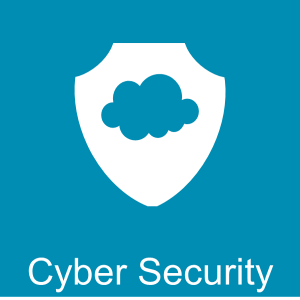5 Tips to Keep You Safe Online
 It’s no secret that there is a pressing need for cyber security. And, as we have discussed before, while we see the value in investing in the right security solutions, there is more to it than just that. If you have spent money and time implementing sophisticated security measures, make sure your employees are educated on how to properly use the internet. No matter how state of the art your security solution is, it still needs its users to be smart about their browsing.
It’s no secret that there is a pressing need for cyber security. And, as we have discussed before, while we see the value in investing in the right security solutions, there is more to it than just that. If you have spent money and time implementing sophisticated security measures, make sure your employees are educated on how to properly use the internet. No matter how state of the art your security solution is, it still needs its users to be smart about their browsing.
Here are a few tips to keep you safe online and ensure that your security can properly do its job:
- Connect to a network that you trust. Free Wi-Fi is inviting, but be sure that you think about who might be providing the connection (and why?). Public connections at the local coffee shop are usually unsecured and leave your machine open to outsiders. While these networks can be convenient, they certainly do not come without risks.
- Use caution when banking and shopping. Stick with the reputable sites that are familiar – like Amazon or eBay. Also, when checking out and finalizing the purchase, look for the ‘padlock’ symbol or the abbreviation ‘https’ in the address bar at the top of your browser. This symbol ensures that you are on a secure, encrypted part of the webpage. Keeping an eye on your bank statements for suspicious activity is always a good idea, among these other best practices for shopping online.
- Use secure passwords. Passwords for logging into any website should contain a mix of letters, numbers, and special characters. They should also be different for each website that you log into. It’s also important not to write them down and leave them in your top desk drawer. Sure, it can definitely be a pain to remember all of these passwords, but ask yourself which is more of a pain – remembering these, or recovering stolen personal information? If an intruder can either easily figure out your password, or find it in your desk – what is the point of password protecting anything anyway?
- Lock Your Computer. Anytime you walk away from your computer, lock it. In Windows, it is as easy as pressing the Windows key + L. On an Apple, press “Control+Shift+Eject” (unless you do not have an optical drive, then you can hit the “Power” key instead of “Eject”). Would you leave your house without locking the front door? It’s essentially the same thing.. it would be like leaving your house with your front door wide open.
- Do not click on anything unfamiliar. If an offer is too good to be true, it probably is. If you get an email from an unknown source, do not click any of the links within it – and immediately report it to your IT department. If a window pops up while browsing a website, immediately close it. Familiarity is always your friend. Using your judgment and trusting your gut is the ultimate defense when online. Always play it safe!

